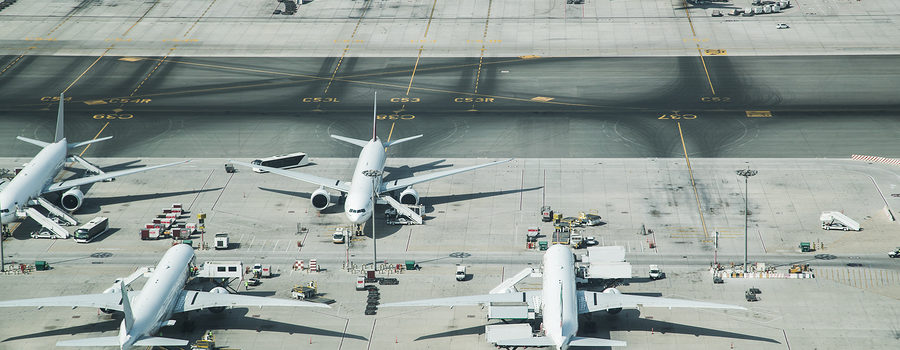Smart Ways Small Businesses Manage Travel Expenses
Whilelarge corporations typically have deep pockets that allow them to easily absorb frequent travel from dozens of employees, small businesses typically lack resources, and as a result, they must be particularly watchful over their travel costs.
While travel expenses can be offset somewhat by tax deductions, it still pays to spend wisely when hitting the road for business.
Here, we’ll teach you a few travel spending tips that will cut down costs without cutting down on your productivity away from home – which ultimately should help you finance more trips down the road.
Small Business Travel Expense Tips
Book Flights Ahead of Time – But Not Too Far Ahead of Time: By now, most travelers know that last-minute flights don’t come cheap, thanks to the forces of supply and demand doing what they do best. But while you can get better airfare prices by booking early, it’s not as simple as “the earlier you book, the better the prices.” Travel site Skyscanner conducted a study of flight pricing data and found the key windows to hit are about 30 days before a domestic flight, and four months before an international flight. Interestingly enough, they also say Saturdays and Sundays are the best days to book a flight, and that 6 a.m. is the best time of day to find a bargain.
Book Hotels Close to Your Business Destination: Yes, you absolutely should try to find a good bargain on a hotel, but the nightly rate isn’t necessarily the bottom line. If you pay $10 more per night to stay somewhere that’s within walking distance of where you’ll be conducting business, you’ll be saving yourself on multiple taxi rides/uber trips/bus and train fares every day – and that will more than make up for the extra $10 in nightly hotel costs.
Sign Up With AAA: If you only plan on traveling once or twice a year, the roughly $80 annual membership to the travel association might not be worth it. But if you’re frequently on the road, the discounts and rewards for hotels, restaurants and even attractions will add up quickly – and it certainly doesn’t hurt to have roadside protection if you tend to drive your car into the ground.
Points: Travel rewards might not always pile up as quickly as you’d like. But if you have to spend money on the road and you don’t have a travel rewards card and don’t belong to hotel/frequent flier programs, you’re shortchanging yourself. High-end cards like American Express’ platinum card offer to cover up to $200 in annual airline fees, up to $200 in annual Uber credits, a fee credit for a TSA/PreCheck application and more that deliver almost thrice the value of the $550 annual fee. But even beginning cards, such as the Chase Sapphire Preferred Card, offer a lot of bang for relatively little buck. A few sites, such as The Points Guy, can help you determine which travel rewards card is best for you. And as far as hotel rewards go: They don’t cost any money and they can add up to better perks and the occasional free stay. There’s nothing to lose and everything to gain.
Avoid Spending Money at the Hotel: Hotels tend to overcharge for almost everything that involves the exchange of money for goods and services, so avoid buying anything at the hotel if you can at all help it. Sometimes, it’s as straightforward as not eating at the hotel restaurant or cracking open the minibar. But some have a few clever tricks to watch out for, such as the bottle of water just sitting out on a desk – once you pick it up and crack it open, you see a card underneath telling you that bottle of water just cost you $5. Think, and look, before consuming anything at a hotel.
Same Goes for the Airport: Drink water before you go through security, pack snacks for yourself to eat before and during the flight. Airports and airlines are as bad if not worse than hotels about charging usurious prices for commonplace foods, so avoid “trapping” yourself into dropping $10 on a sandwich.
Set a Budget, And Keep Yourself Honest: New business travelers are especially prone to slipping into the mentality that a company trip is sort of, kind of, a little bit like a vacation … so why not got nuts and splurge a little bit on food and drink? Maybe you deserve it, but it still doesn’t make overspending a smart idea. Before you travel on business – especially if you’re going to a much pricier city than the one you’re based in – research nearby restaurants online and set a budget for yourself. Then, once you’re there, stick to it. It’s easy, over the course of a few days, to spend $100-$200 more than you initially planned if you give in to your more frivolous instincts – enough to pay for another night or two at a hotel on a future business trip.
McManamon offers accounting and tax services to small- and medium-size businesses. So while we can’t help you determine whether you should go with Marriott Bonvoy rewards or Hilton Honors, we can help you with best practices for logging and keeping track of all these business expenses – and we absolutely can make sure you get every dime of business travel tax deductions.
There’s nothing small about small business finances, so don’t try to shoulder the load yourself. Call us 440.892.9088 or contact us online today, and we’ll buy you the time to balance your many responsibilities.
Tags: McManamon, small business, travel expenses | Posted in McManamon & Co., small business, small business taxes
